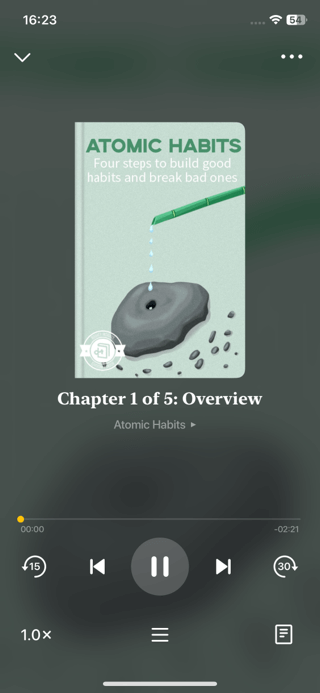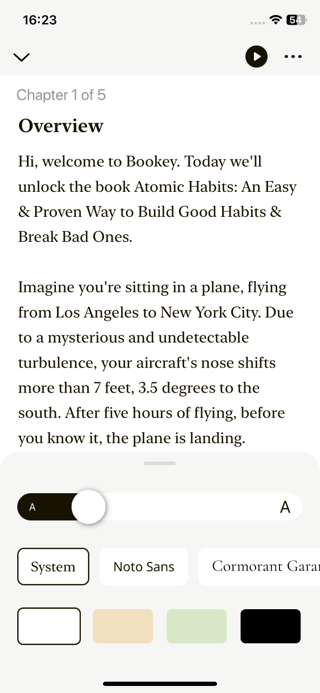Last updated on 2025/04/30
Romeo And Juliet Summary
William Shakespeare
A Tragic Tale of Love and Family Feud
Last updated on 2025/04/30
Romeo And Juliet Summary
William Shakespeare
A Tragic Tale of Love and Family Feud
Description

How many pages in Romeo And Juliet?
281 pages
What is the release date for Romeo And Juliet?
"Romeo and Juliet," one of William Shakespeare's most celebrated tragedies, delves into the intoxicating yet perilous depths of young love amidst the backdrop of familial feud and societal constraints. Set in the vibrant city of Verona, this timeless tale follows the passionate and ill-fated romance between two star-crossed lovers, whose devotion transcends the bitter animosities of their warring families, the Montagues and the Capulets. Shakespeare masterfully captures the euphoria of love intertwined with the tragic inevitability of fate, reminding us how fleeting and fragile our deepest emotions can be. As we journey through their heart-wrenching story, we are compelled to reflect on the consequences of hatred and the profound yearning for connection—an exploration that resonates through the ages, inspiring readers to contemplate the true nature of love and its capacity to defy the darkest of circumstances.
Author William Shakespeare
William Shakespeare, often hailed as one of the greatest playwrights in the English language, was an English poet, playwright, and actor born in April 1564 in Stratford-upon-Avon. His prolific career spanned the late 16th and early 17th centuries, during which he penned 39 plays, 154 sonnets, and several narrative poems, exploring themes of love, fate, conflict, and the complexity of the human experience. Shakespeare's works, characterized by their rich language, intricate character development, and profound emotional depth, have transcended time and place, influencing countless writers and artists across generations. He was a key figure in the English Renaissance, with his plays performed in the famous Globe Theatre, and his legacy endures as he continues to be celebrated and studied for his contributions to literature and drama globally.
Romeo And Juliet Summary |Free PDF Download
Romeo And Juliet
Chapter 1 | 1
In the bustling streets of Verona, a simmering feud between the Capulets and Montagues erupts into violence, instigated by their hot-headed servants, Sampson and Gregory. Their playful banter quickly escalates as they confront Abraham and Balthasar, Montague's servants. Benvolio, a peace-loving cousin of Romeo Montague, intervenes to stop the brawl but is soon challenged by Tybalt, a fierce Capulet. The brawl intensifies until Prince Escalus arrives, threatening death to anyone who disturbs the peace again. Back at the Montague household, Montague expresses concern for his son Romeo, who has been acting secretively and sorrowfully. Benvolio deduces that Romeo is lovesick over Rosaline, a woman who has sworn off love. Meanwhile, in the Capulet household, Lady Capulet and Juliet's Nurse discuss Juliet’s age and the prospect of marriage, particularly to Paris, a suitor. At the Capulet’s feast that night, Romeo and his friends decide to crash the party, where Romeo is struck by Juliet’s beauty and instantly falls in love with her. Tybalt recognizes Romeo and wishes to confront him, but Lord Capulet forbids it, arguing Romeo is respectful. As Romeo and Juliet share a tender moment and kiss, they discover each other’s identities—she a Capulet, he a Montague—setting the stage for their tragic love story. Juliet is torn by the realization that her newfound love is from the family her family despises. This first act introduces key themes of love versus hate, the impulsive actions driven by youth, and the effects of familial loyalty. Both families' longstanding feud shapes the lives of the young lovers, paving the way for the unfolding tragedy that intertwines their fates.
Key Point: The consequences of family feuds
Critical Interpretation: Imagine yourself standing at the crossroads of loyalty and love, much like Romeo and Juliet. The bitter feud between their families serves as a poignant reminder of how the conflicts we inherit can cloud our choices and affect our relationships. Instead of being shackled by the grudges of others, you have the power to rise above such divisions, allowing love and understanding to guide your actions. Embracing unity over conflict not only liberates your heart but also paves the way for deeper connections and a more harmonious existence.
Chapter 2 | 2
In Chapter 2 of "Romeo and Juliet," the story unfolds with the enchanting Prologue delivered by the Chorus, setting the stage for the budding love between Romeo and Juliet, characters from feuding families, the Montagues and Capulets. The prologue hints at their intense but challenging romance, filled with obstacles due to their families' longstanding enmity. The act begins with Romeo, who sneaks into the Capulet orchard, pining for Juliet. His friends, Mercutio and Benvolio, search for him, joking about his lovesickness over Rosaline. However, Romeo is oblivious to their antics as he secretly enjoys the beauty of Juliet from below her balcony, captivated by her presence. Their first exchange blossoms into one of Shakespeare’s most famous love scenes, where Juliet wonders why Romeo has to be a Montague. She expresses that a name holds no true importance; their love transcends family rivalries. Their conversation is filled with poetic declarations of love, and they both confess their feelings for each other despite the danger of being discovered. Juliet, displaying both innocence and boldness, invites Romeo to profess his love for her. Their shared passion leads to a plan: Romeo will send word through the Nurse to arrange for their secret marriage. Juliet, eager and impatient, counts the minutes until they can unite. The next scene shifts to Friar Laurence, who is surprised by Romeo's rapid change of affection from Rosaline to Juliet. He initially questions the sincerity of Romeo's feelings but ultimately agrees to marry them, hoping it might end the feud between their families. The act continues with humorous banter between Mercutio and Benvolio, who tease Romeo's love life, unaware of his deeply genuine feelings for Juliet. As the Nurse arrives to meet with Romeo, playful exchanges ensue, but she eventually conveys Juliet's eagerness to marry him. After some comic relief, Juliet eagerly anticipates the moment she can be with Romeo, emphasizing her youthful excitement and longing. The act ends with the couple finally united in holy matrimony, a decision that reflects both the intensity of their love and the recklessness of their actions, foreshadowing the tragic consequences to come. In essence, this act beautifully captures the theme of young love — passionate, impulsive, and defiant against societal constraints, while also weaving in the tension and humor found in Romeo and Juliet's relationships with their friends and family. The anticipation of their secret union sets a dramatic tone that resonates throughout the play.
Key Point: Love transcends societal boundaries and expectations
Critical Interpretation: In the enchanting exchange between Romeo and Juliet, we witness their love flourishing despite the fierce rivalry between their families. This teaches us that true love is powerful enough to rise above societal constraints, prejudices, and family feuds. It's a reminder that we should not allow external circumstances or societal expectations to define our relationships or dictate our feelings. Instead, we should embrace love with open hearts, fearless of the obstacles that may lie ahead, for it is the courage to love that truly enriches our lives.
Chapter 3 | 3
In Act III of "Romeo and Juliet," the intense conflict between the Montagues and Capulets escalates dramatically, setting the stage for profound tragedy. The act opens with Mercutio, Benvolio, and their page in a public place, discussing the heat of the day and the potential for fight. Benvolio tries to keep the peace, urging Mercutio to withdraw to avoid a brawl. However, Mercutio mocks Benvolio’s cautiousness, boasting about his propensity for fighting. As Tybalt and others enter, tensions rise. Tybalt angrily confronts Romeo, calling him a villain. In a surprising turn, Romeo refuses to fight Tybalt, claiming love for him because of their new familial connection through Juliet. Mercutio, irritated by Romeo’s refusal to defend his honor, challenges Tybalt himself. Despite Romeo's attempts to keep the peace, the duel ensues, and in a tragic twist, Mercutio is mortally wounded while Romeo tries to intervene. Before dying, Mercutio curses both families, proclaiming, “A plague o’ both your houses!” Enraged by Mercutio’s death, Romeo seeks vengeance and quickly confronts Tybalt, ultimately killing him. With Tybalt slain, Romeo realizes the grim consequence of his actions—he has avenged his friend but condemned himself, as the Prince of Verona decrees that Romeo will be exiled from the city. Benvolio expresses concern for Romeo’s fate, while other citizens gather to uncover the cause of the brawl. Meanwhile, in the Capulet's orchard, Juliet eagerly awaits news from Romeo but is soon overwhelmed by the Nurse's revelation of the chaos that has unfolded. The Nurse informs Juliet of Tybalt's death and Romeo's banishment, leaving her torn between her love for Romeo and her sorrow over Tybalt, her cousin. In Friar Laurence’s cell, Romeo mourns his banishment more than Mercutio’s death, feeling as if he has lost everything. The Friar attempts to console him by emphasizing that exile is a lesser punishment than death. Soon, Juliet's Nurse arrives, bringing news of Juliet’s despair. The Nurse reveals that she will seek out Romeo, hoping to unite the lovers one last time. As the act progresses, Capulet and Lady Capulet discuss Juliet’s future, enforcing plans for her marriage to Count Paris in the wake of Tybalt’s death. Juliet is distraught upon learning of the engagement, firmly rejecting the idea of marrying Paris and insisting that she would rather be with Romeo, even if it means defying her family. The act closes in a storm of emotion, with Juliet feeling betrayed and vulnerable, expressing her anguish over her father's harshness and her inability to connect with Romeo due to their fateful circumstances. In her desperation, she decides to seek Friar Laurence for help, desperate to find a remedy for her plight, signaling her readiness to take drastic action to be reunited with her love. Themes of love, fate, and the consequences of violence are deeply woven throughout this pivotal act, highlighting the tragic trajectory spiraling from the feud and the characters' youthful passions and impulsive choices.
Key Point: The Consequences of Violence
Critical Interpretation: The tragic escalation of conflict in this act serves as a powerful reminder of the destructive nature of violence. As you reflect on the choices you make, consider how a moment of anger can lead to irreversible consequences. In moments of heated emotion, remember that the pursuit of peace and understanding is far more rewarding than the burden of vengeance. Strive to break the cycle of hostility in your own life, fostering connections rather than conflicts, as the bonds of love can usher in healing and harmony.
Chapter 4 | 4
In Act IV of "Romeo and Juliet," we see heightened urgency and desperation as the characters grapple with love, loss, and the looming threat of marriage. The act begins in Friar Laurence's cell, where Paris is eager to marry Juliet, pressured by her father, Capulet, to hasten the union after Tybalt’s death. Paris discusses Juliet's grieving, hinting that the marriage might bring her out of her sorrow, but Friar Laurence is uneasy about the rush. When Juliet arrives, the tension is palpable. Paris greets her affectionately, but Juliet deflects his advances, expressing a complex layer of her emotions. After Paris leaves, Juliet reveals her profound despair to Friar Laurence, saying she would rather die than marry Paris. This powerful declaration underscores her love for Romeo and her desperation to escape her situation. In a moment of resolve, she threatens to take her own life unless the Friar can offer a solution. Friar Laurence, seeing a glimmer of hope in her determination, devises a daring plan: he offers Juliet a potion that will simulate death for 42 hours. The plan is risky but offers her a chance to escape the impending marriage to Paris and reunite with Romeo. Juliet, filled with determination and fear, accepts the plan, signaling her willingness to do whatever it takes to be with Romeo. The scene shifts to the Capulet household, where preparations for Juliet's wedding are underway. Capulet is bustling about, unaware of the impending tragedy, showcasing the theme of fate's cruel twists. When Juliet returns home, she feigns obedience to her parents, acting agreeable in a bid to reinforce her cover while she prepares to take the potion. As night falls, Juliet is left alone in her chamber, grappling with fear and dread about the potion's potential effects. Her internal monologue reveals her deep fears of waking too soon in the tomb, surrounded by death and her slain cousin Tybalt. Her worries illustrate the play's overarching themes of love intertwined with death, and the frantic, sometimes irrational choices made in the name of love. Ultimately, believing in her plan to unite with Romeo, she drinks the potion and falls onto her bed. The final scene leads to the aftermath of Juliet's supposed death, where the Capulet household mourns in chaos. The Nurse discovers Juliet, now lifeless, and the family spirals into grief. Capulet’s heart-wrenching lament emphasizes the devastating loss, an abrupt shift from the joy of a wedding to the sorrow of funerals. The act closes with a poignant reflection on the fickle nature of fate as characters express their despair, while Friar Laurence reminds them that although they mourn, Juliet is now with God. The irony that their wedding plans are turned into funeral preparations highlights the tragedy of their situation, encapsulating the play's themes of love, fate, and the inevitability of death.
Chapter 5 | 5
In the dramatic Act V of "Romeo and Juliet," the story reaches its heart-wrenching climax. The act opens in Mantua with Romeo feeling buoyant and optimistic, convinced that he will soon receive good news about Juliet. His joy is short-lived when he learns from his servant Balthasar that Juliet is dead, lying in the Capulet family tomb. Desperate and enraged, Romeo resolves to return to Verona immediately. Fueled by grief, he seeks out an apothecary to obtain poison so he can join Juliet in death. In an eerie twist, while Paris mourns Juliet at her tomb, Romeo approaches to fulfill his tragic plan. Paris recognizes Romeo as the banished Montague, believing he has come to desecrate Juliet’s resting place. A confrontation ensues, leading to a duel in which Paris is slain. Romeo, grief-stricken, finds Juliet seemingly lifeless and drinks the poison just before Juliet awakens from her death-like sleep induced by Friar Laurence's potion. As Juliet stirs, she finds Romeo dead beside her. In her anguish, she takes Romeo's dagger and ends her own life, thus sealing their tragic fate. Just moments later, Friar Laurence arrives, horrified by the scene he discovers. He recounts the series of unfortunate events that led to the lovers’ deaths, inadvertently exposing the true extent of the feud between the Montagues and Capulets. As the families gather, grief and blame erupt. Prince Escalus arrives to investigate, and the tragic consequences of hatred and rivalry become starkly evident. Recognizing the futility of their animosity, Capulet and Montague embrace, vowing to honor their children’s memory by reconciling and ending the feud. The act closes with the Prince's somber reflection that never was there a story of such woe as that of Juliet and her Romeo, underscoring the themes of love, loss, and the tragic consequences of discord. This powerful conclusion reminds us how deeply intertwined love and fate can be, often leading to unforeseen tragedy.







